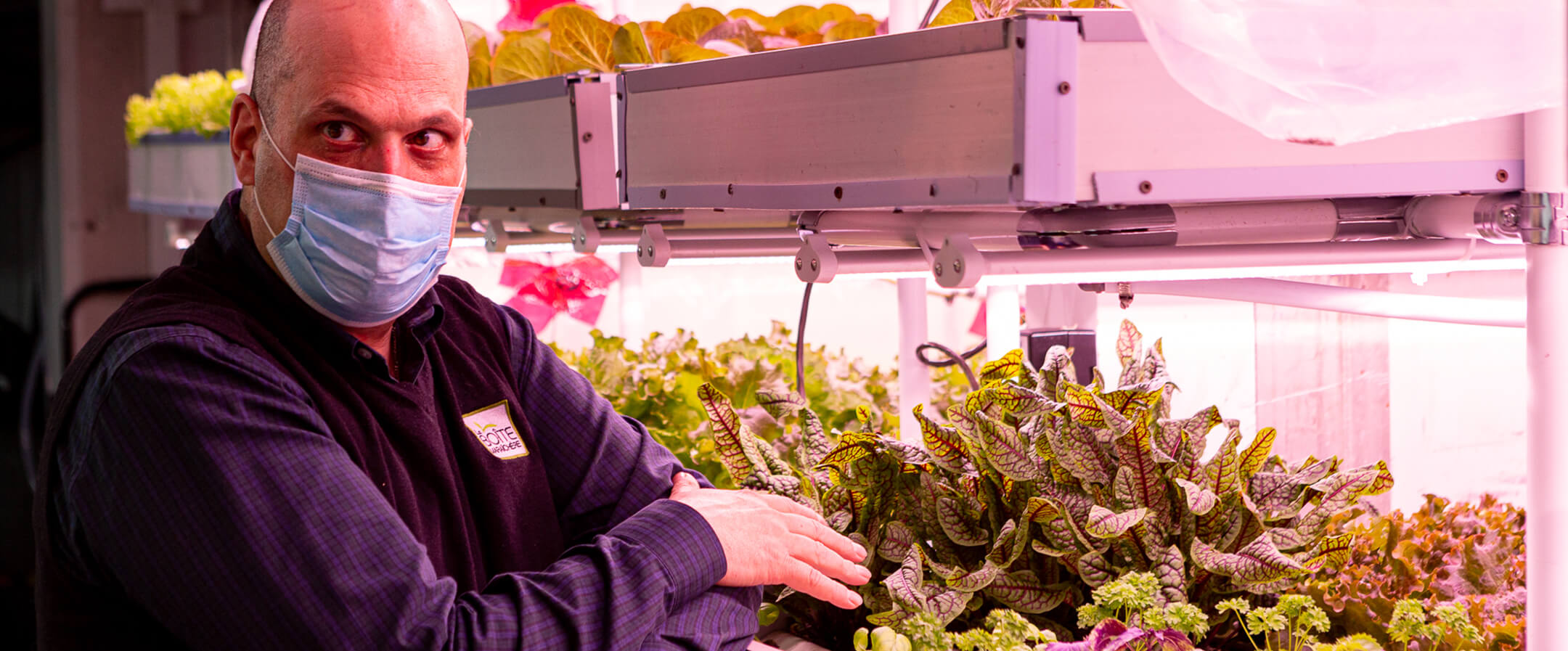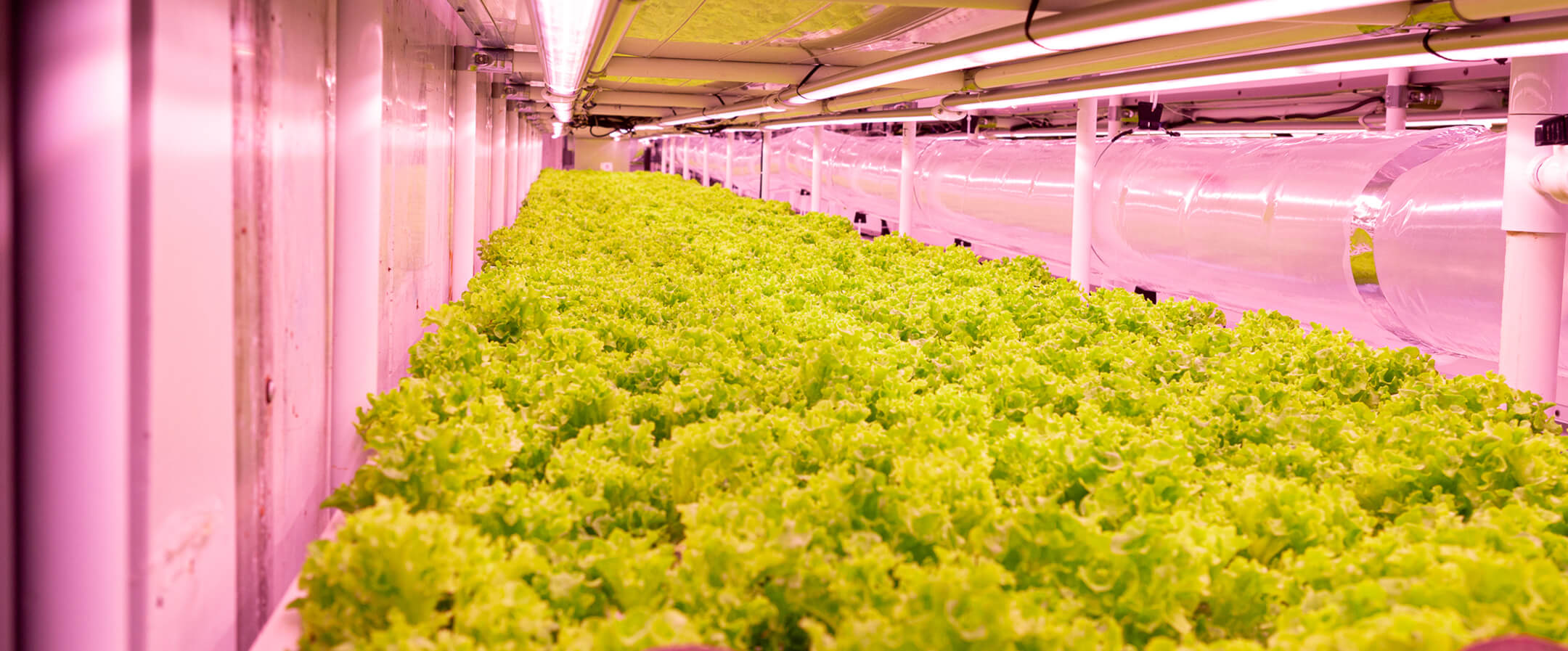La Boîte Maraîchère and the magic of container farming.
 La Boîte Maraîchère is tucked just off Highway 440 in Laval, comprised of 80 square feet of plants growing in back-to-back rows within 18 recycled shipping containers. Our team popped in for a quick visit to learn more about this out-of-the-box (or…inside-the-box) urban ag concept.
La Boîte Maraîchère is tucked just off Highway 440 in Laval, comprised of 80 square feet of plants growing in back-to-back rows within 18 recycled shipping containers. Our team popped in for a quick visit to learn more about this out-of-the-box (or…inside-the-box) urban ag concept.
Richard Giunta, their founder, has over a decade of experience working in the organic food industry and started this project with the goal of helping his community. By growing in shipping containers, his idea is to create a hyper-local urban farm that grows fresh vegetables where they’re needed most - and in any climate. Eliminating outside influences like weather and variability of light, allows them to grow greens anywhere, with a focus on places where it's next to impossible to source fresh, local produce.
Although research and experts advised him to use pesticides, Richard is firmly pushing sustainability in his projects and sticks to biological controls, while staying away from synthetic pesticides. And he’s extended this eco-consciousness even further, recycling outside sourced machinery that his team fixes up themselves, while sourcing almost all their equipment from less than 100 kilometres away.
The indoor containers work a little differently than your average greenhouse or farm. Here’s how they do it:

The germination process begins in a sprouter, an area where the plants remain humid for two to three days.

The sprouts then spend two to three weeks in their nursery, where they’re given lots of artificial light and water.

The final step is placing the plants into the main system, where they grow in a recirculating hydroponic system under artificial lights for another three to four weeks until harvest. Once they’re ready, they're sent to us, all without ever seeing the light of day.
Despite our ten years of experience in urban ag, it's still an area of growth and research, and we all have a part to play. From community gardens, field farms, and rooftop greenhouses, right down to recycled shipping containers - this is the future folks, and we're glad to be part of it!
